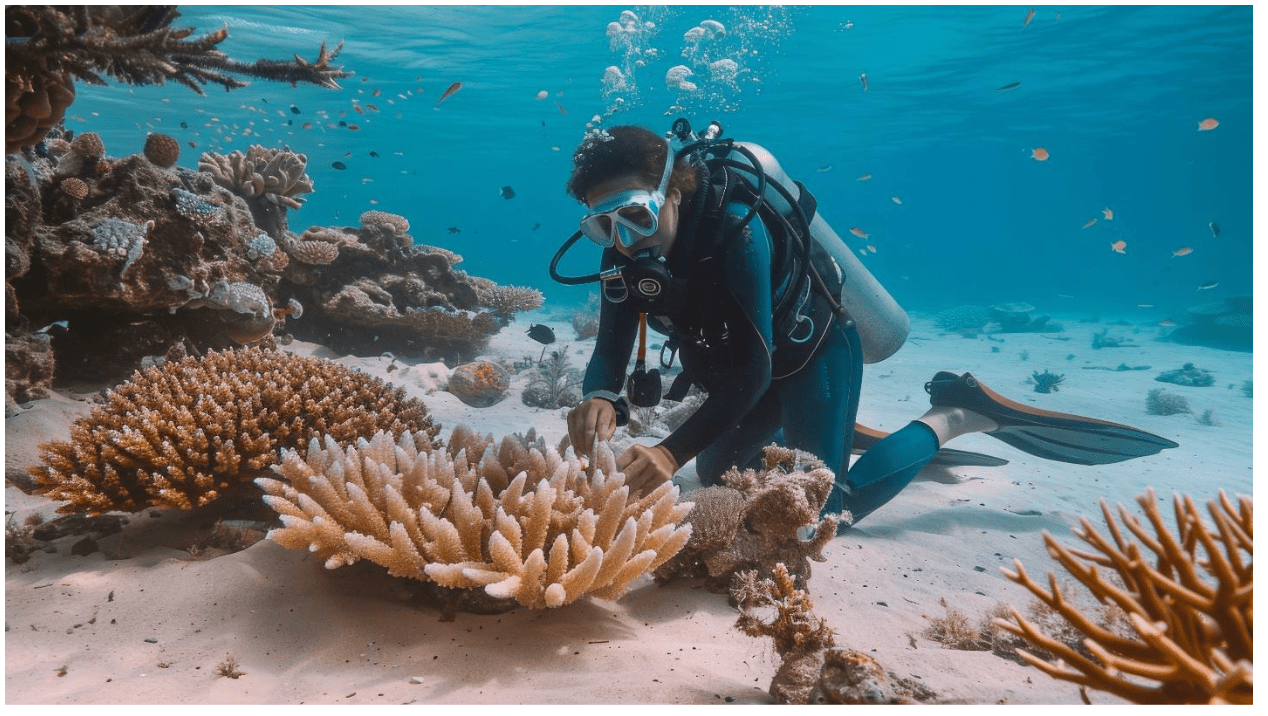

Why do the coral reefs in Belize matter?
Coral reefs are underwater structures made by small marine animals called coral polyps. As they grow in groups and build hard shells, they form vast reef systems. These underwater reefs assist in ensuring the survival of marine species, protecting the coast from dangerous waves, and helping people through the fishing and tourism industries. The Belize Barrier Reef is considered the second most extensive reef system on Earth. However, the reefs in Belize are currently at risk due to various reasons, such as pollution, climate change, and ecologically damaging practices.
Who is eligible to volunteer?
In many of the environmental volunteer programs in Belize, beginners are welcome. They don’t require prior diving skills or a background in marine biology to participate. These programs often provide training that includes scuba diving, coral identification, and guidelines for protecting marine life.
The impact of environmental volunteering in Belize
Environmental volunteering in Belize gives people the chance to protect and restore the coral reefs in conjunction with local conservation teams. This can include coral restoration, marine research, and coral reef cleanups.
- a) Coral restoration
Volunteers help transplant corals from healthy areas to damaged reef areas for their faster growth. This way, there is a possibility of natural regeneration of corals. Follow-up, such as monitoring their growth and inspecting any signs of disease, improves the survival rate of corals.
- b) Marine research
Performing underwater surveys enables the monitoring of various species like fish, sea turtles, and other coral creatures. Additionally, this helps in checking pollution as well. It also helps in observing bleaching events and algae overgrowth. These surveys can also record human impact, such as detecting breaks in coral structures.
- c) Coral reef cleanups
Removing garbage like clean plastic bags, bottles, straws, and fishing gear like fishing lines and nets from the underwater environment protects the marine species from being entangled in or ingesting this garbage. Coral stress and physical damage can also be minimized.
Tips to follow when volunteering in Belize
- Opt for mineral-based sunscreens, which consist of non-nano zinc oxide or titanium dioxide, which are non-toxic to corals.
- Minimize waste by carrying reusable bottles, bags, and containers, particularly while travelling.
- Conserve water and electricity by reducing their use and switching to energy-efficient appliances.
- Choose seafood certified by sustainable fisheries, such as MSC or local eco-labels. Say no to souvenirs made from corals and marine creatures.
- Since reefs are affected by factors like pollution and climate change, try to walk on foot, or use a bike, carpool, or take public transit to reduce your carbon footprint.
- Use non-toxic and biodegradable cleaning products to control water pollution.
- Avoid touching coral, as it can damage their fragile structure or spread disease. Even small things like disturbing the sand on corals may injure coral, taking them years to heal.
Ways to support the cause after volunteering
- Engage people by creating educational content such as writing blogs, designing infographics, and creating YouTube videos related to the importance of coral reefs.
- Support fundraising programs for reef restoration.
- Perform local awareness events at schools, colleges, and community centers.







